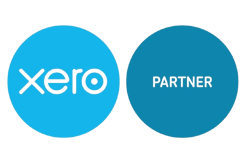Maximizing Your Business's Potential
A Guide to Deductible Expenses for Limited Companies
2/14/20242 min read


Are you a limited company owner looking to maximize your profits and minimize your tax liabilities? One effective strategy is to take advantage of deductible business expenses. By understanding what expenses you can deduct, you can optimize your financial resources and keep more of your hard-earned money in your pocket.
In this blog post, we'll explore the various expenses that limited companies can deduct, helping you make informed decisions and potentially save significant amounts of money in taxes.
What are deductible business expenses?
Deductible business expenses are costs that are incurred while operating your business and can be subtracted from your company's income to reduce the amount of taxable income. Essentially, these expenses help lower your overall tax bill, allowing you to retain more of your earnings.
Common deductible expenses for limited companies:
Operating Costs: This includes expenses related to running your business such as rent for office space, utilities, insurance premiums, and office supplies. Any costs associated with maintaining your business premises and keeping it operational are generally deductible.
Employee Salaries and Benefits: Wages, salaries, bonuses, and benefits paid to employees are usually deductible. This includes employer contributions to retirement plans, health insurance premiums, and other employee benefits.
Professional Services: Fees paid to professionals such as accountants, lawyers, consultants, and contractors are typically deductible. These professionals provide essential services that help your business operate efficiently and comply with legal and regulatory requirements.
Marketing and Advertising: Expenses incurred for promoting your business, including advertising campaigns, website development, social media marketing, and printed materials, are generally deductible. Investing in marketing is crucial for attracting customers and growing your business.
Travel and Entertainment: Costs related to business travel, including transportation, accommodation, meals, and entertainment expenses incurred while traveling for business purposes, are often deductible. However, it's important to keep detailed records and ensure that these expenses are strictly business-related.
Equipment and Depreciation: The cost of purchasing or leasing equipment and machinery for your business can be deducted over time through depreciation. This allows you to spread out the expense over the useful life of the asset.
Software and Technology: Expenses for software licenses, subscriptions, and technology services necessary for your business operations are typically deductible. This includes accounting software, customer relationship management (CRM) systems, and other productivity tools.
Training and Education: Costs associated with employee training and professional development programs can be deductible. Investing in the skills and knowledge of your workforce can lead to increased productivity and innovation within your company.
Conclusion
Understanding and maximizing deductible business expenses is essential for optimizing your company's financial performance and minimizing your tax liabilities. By carefully tracking your expenses and taking advantage of all available deductions, you can improve your bottom line and position your business for long-term success.
Remember, tax laws and regulations may vary depending on your location and business structure, so it's advisable to consult with a qualified accountant or tax advisor to ensure compliance and maximize your tax savings.
At Fincollab, we're committed to helping limited companies like yours thrive. Contact us today to learn more about how we can support your business's financial needs and goals.
With strategic planning and smart financial management, you can take your limited company to new heights of success. Start maximizing your deductible expenses today and unlock the full potential of your business
Contacts
info@fincollab.co.uk
07361 801 433
Socials


Practice No 24189
Cookies Policy
Fincollab Ltd. All rights reserved. Registered Office: 128 City Road, London EC1V 2NX. Company Number: 15152339




